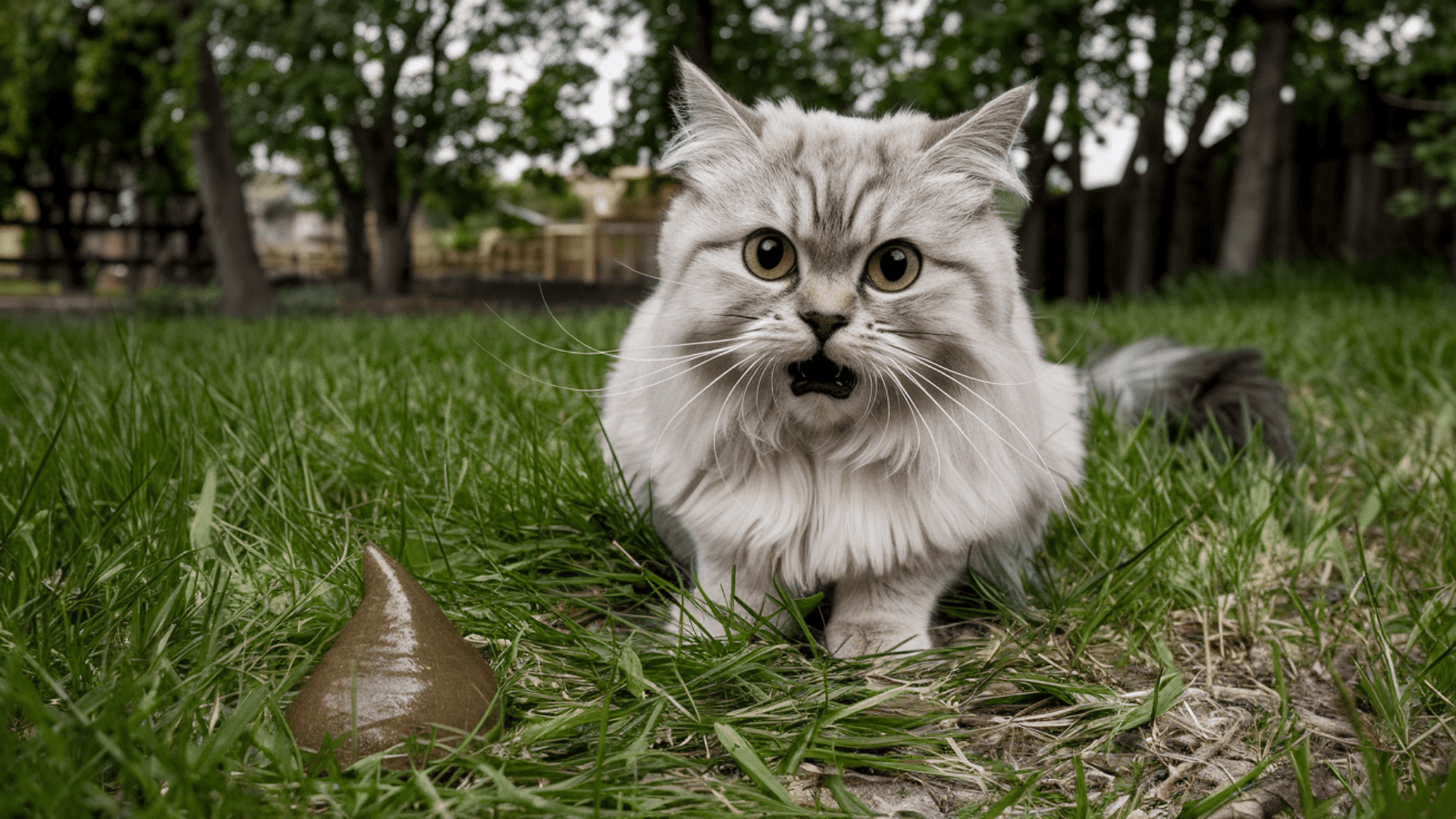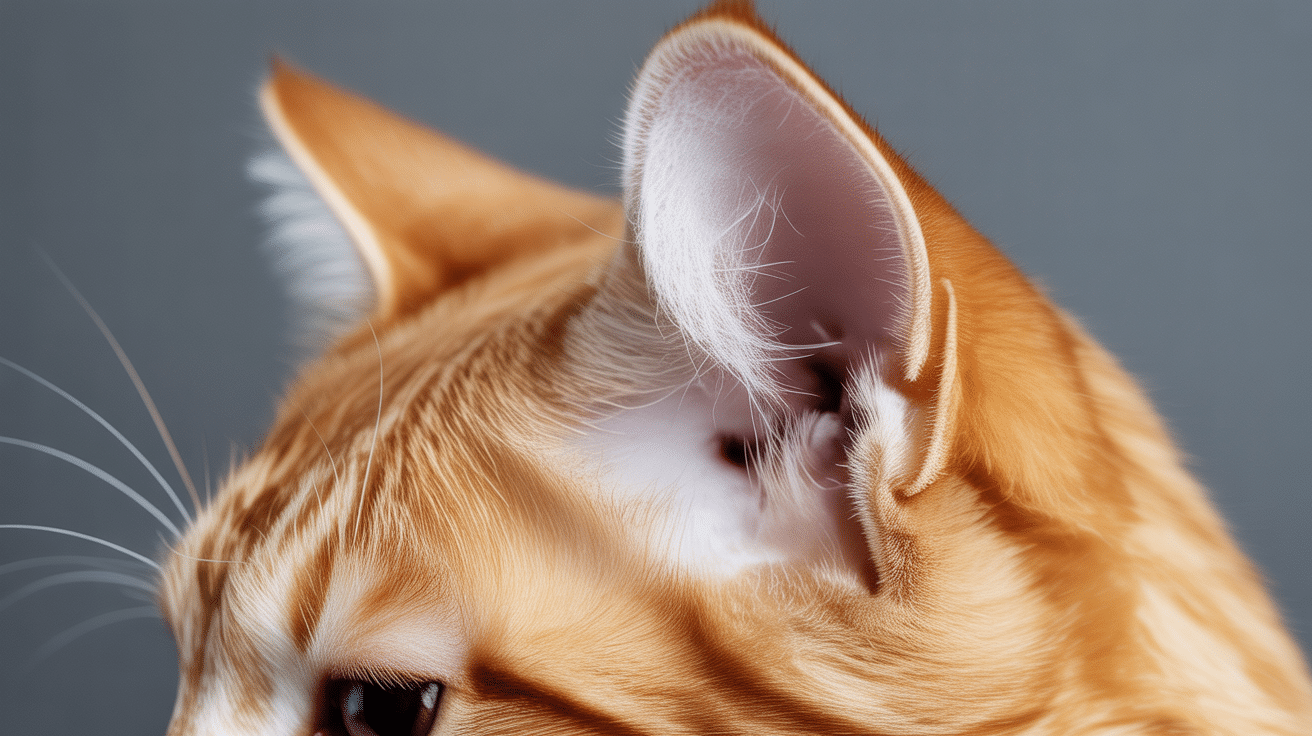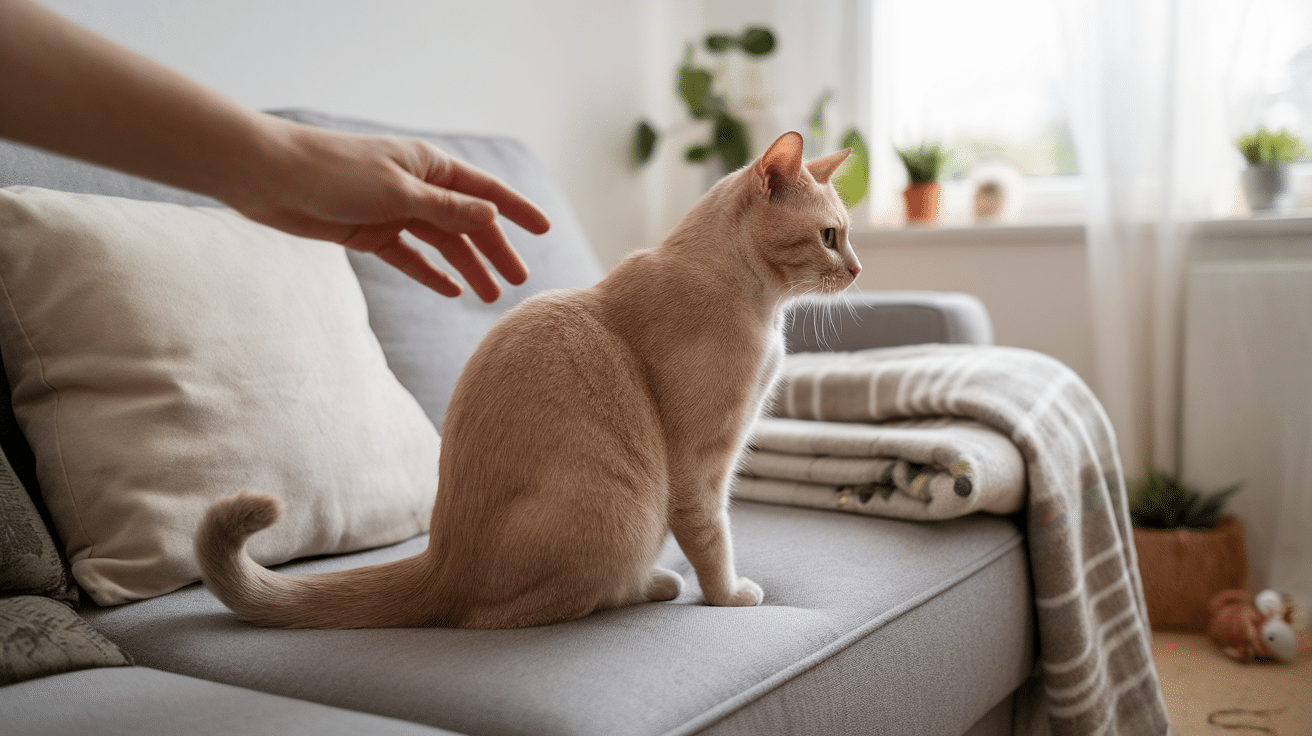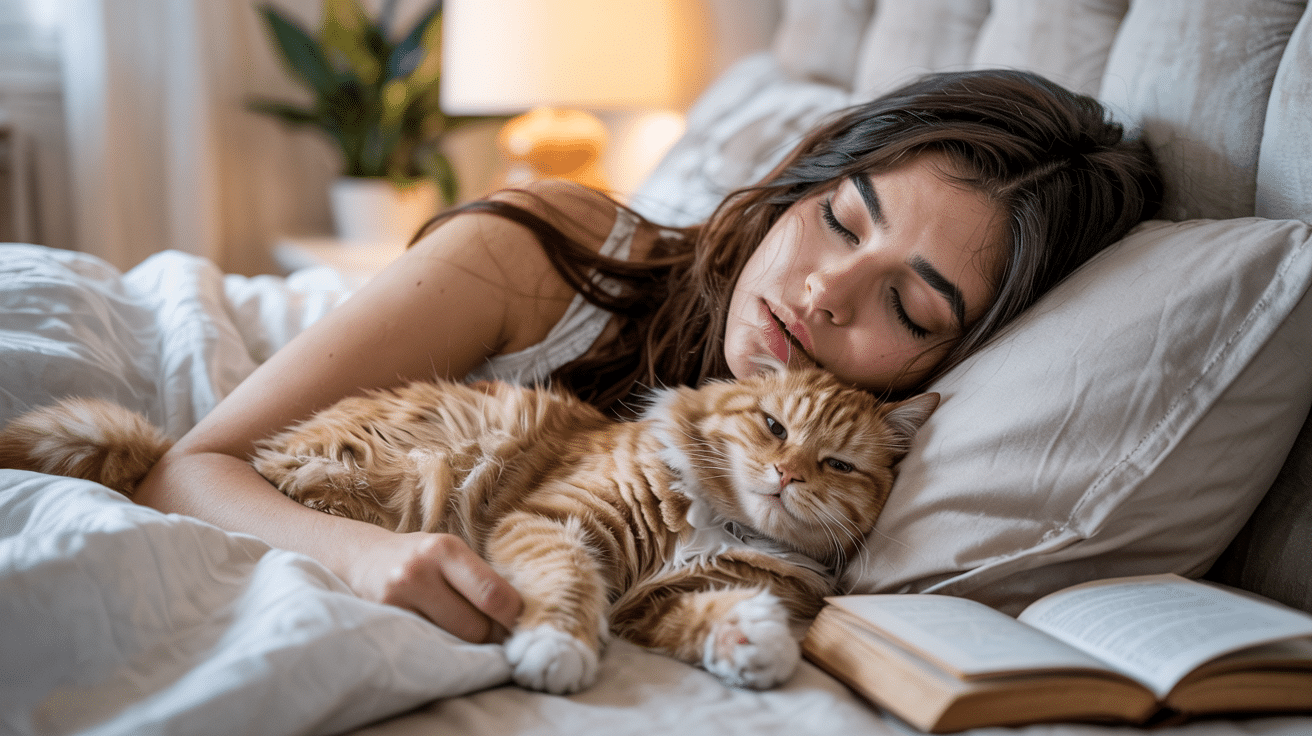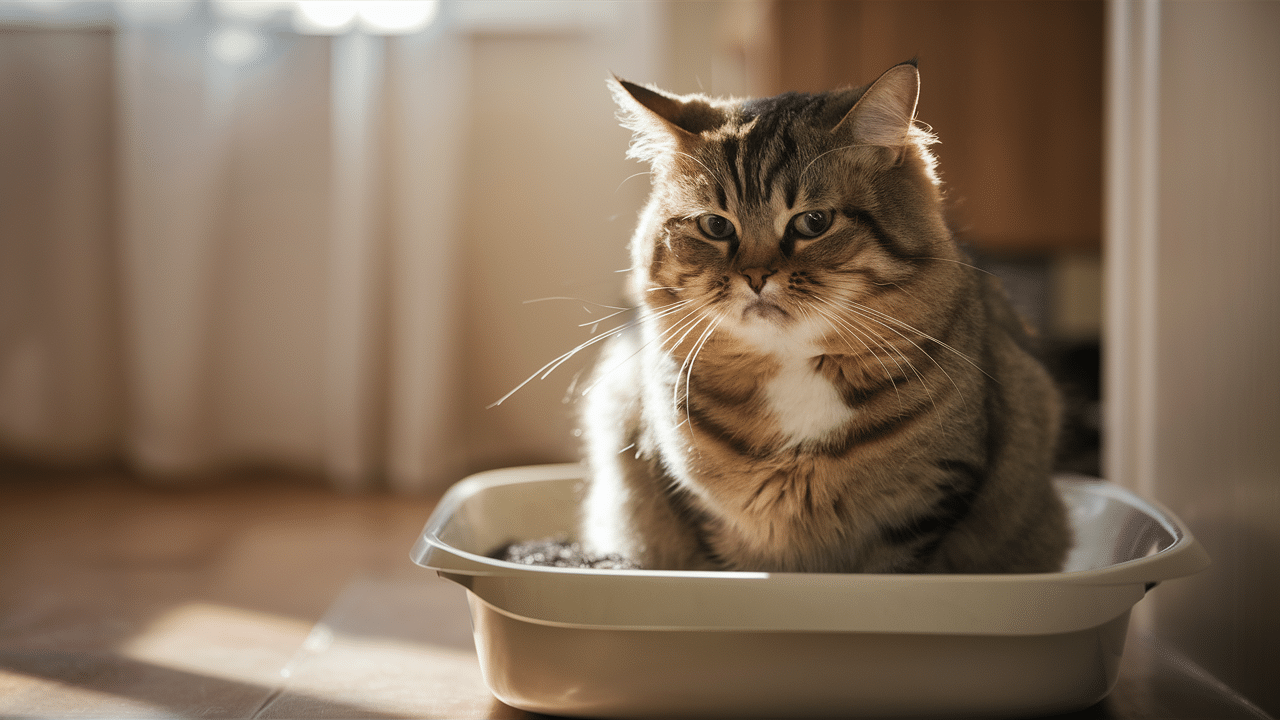Is your cat having trouble in the litter box? Constipation is a common but often overlooked problem that can make your furry friend uncomfortable.
If your cat is straining, not pooping as often, or showing signs of distress, it could be dealing with constipation.
The good news is that this issue can usually be managed with some simple changes to their diet and lifestyle.
In this blog, we’ll discuss solutions like hydration, dietary tips, exercise, and when to seek veterinary help.
Whether it’s a home remedy or a vet-approved treatment, we’ll guide you through what works best for your cat’s digestive health.
Keep reading to learn how you can help your cat feel better and prevent future problems.
Understanding Cat Constipation
Constipation in cats occurs when they have difficulty passing stool or do not poop regularly. It can lead to discomfort, pain, and other health issues if not addressed.
A common cause of constipation is dehydration, which can result in harder stools that are difficult to pass.
Another major contributor is a poor diet, especially a lack of fiber. Dry food, in particular, can worsen constipation.
Obesity is another factor, as overweight cats often experience slower digestion. Stress or anxiety can also disrupt a cat’s bowel movements.
Additionally, certain health conditions like arthritis or kidney disease may affect a cat’s ability to pass stool.
Key symptoms to look out for include straining in the litter box without producing stools, less frequent or absent bowel movements, and a loss of appetite or vomiting.
Lethargy or reduced activity, abdominal pain, or bloating may also be signs. Recognizing these signs early can help prevent further complications.
Hydration: The Key to Healthy Digestion
Proper hydration is essential for a cat’s digestive health. When a cat doesn’t drink enough water, the stool becomes dry and hard, making it difficult to pass.
Ensuring your cat stays hydrated can help prevent constipation and keep their digestive system running smoothly.
To encourage water intake, start by ensuring that fresh water is always available. Some cats prefer moving water, so a water fountain can make drinking more appealing.
Placing multiple water bowls around the house can also encourage your cat to drink more. It’s important to make sure the water is clean and refreshed regularly.
Wet food can significantly help with hydration in addition to fresh water. Its higher moisture content than dry food aids digestion and softens stools.
If your cat isn’t used to wet food, you can gradually introduce it to their diet.
Here are some simple tips to encourage your cat to drink more water:
- Water fountains: Continuous fresh flow.
- Wet food: Higher moisture content.
- Flavored water: Add broth for taste.
- Multiple bowls: Accessible locations.
- Ice cubes: Fun and refreshing.
Keeping your cat hydrated is one of the easiest and most effective ways to help with constipation and promote overall digestive health.
Dietary Adjustments for a Healthy Gut
Fiber plays a crucial role in maintaining healthy digestion for cats. It helps soften stools and move them more easily through the digestive system.
Fiber-rich foods and fiber supplements can help prevent and treat constipation. By adding more fiber to your cat’s diet, you encourage better bowel function and reduce the risk of digestive issues.
Fiber-rich foods, such as canned pumpkin (unsweetened and plain), are a popular remedy for constipation. They are not only high in fiber but also easy to mix with your cat’s regular food.
Fiber supplements, like psyllium husk, can also be added to your cat’s food to boost fiber intake.
Always consult with a vet before introducing new supplements to ensure they’re suitable for your cat.
Here are some recommended foods and diet options to help manage constipation:
- Canned pumpkin: High fiber, gentle on the stomach.
- Psyllium husk: Natural fiber supplement.
- Wet food: Adds moisture and supports digestion.
- Chicken or lamb: Lean proteins that are easy to digest.
- Specialized fiber cat food: Commercial diets designed for digestive health.
By adjusting your cat’s diet to include these fiber-rich foods, you can promote healthy digestion and prevent constipation.
Promoting Activity to Stimulate Digestion
Exercise plays a vital role in helping your cat’s digestive system function properly. Physical activity stimulates the muscles in the digestive tract, which encourages regular bowel movements.
When your cat stays active, their body is better able to process food and move it through their system more efficiently.
Playtime is an easy and enjoyable way to get your cat moving. Interactive toys are particularly effective at encouraging exercise and improving digestion.
Regular movement helps prevent constipation by promoting circulation and supporting overall gut health.
To keep your cat active, consider using a few fun tools. Laser pointers are a great way to get your cat chasing and running around.
Leather wands engage their natural hunting instincts, and puzzle feeders can keep them moving while providing mental stimulation.
Simple toys like balls or small stuffed animals can encourage your cat to bat, chase, and run.
Incorporating these activities into your cat’s routine will help maintain a healthy digestive system while also keeping your cat entertained and active.
Probiotics and Stress Reduction
Probiotics are beneficial bacteria that support healthy digestion. They help maintain a balanced gut flora, which is essential for breaking down food and absorbing nutrients.
Adding probiotics to your cat’s diet can improve their digestive health and prevent constipation by promoting the growth of good bacteria in the intestines.
Stress can significantly impact your cat’s digestive system. When a cat is stressed, it can have irregular bowel movements, leading to constipation.
Common stressors include changes in the environment, new pets, or loud noises. Stress can disrupt the normal function of the intestines, making it harder for your cat to pass stool.
To help reduce stress, create a calm and predictable environment for your cat. Provide a quiet space with cozy resting spots, and maintain a consistent routine.
Playtime and positive reinforcement can also help reduce anxiety and promote relaxation.
Reducing stress and adding probiotics to your cat’s diet can significantly support digestive health and prevent constipation.
How to Tell If Your Cat’s Constipation Is Severe
Constipation can sometimes become a serious health issue. If your cat is experiencing severe discomfort, it’s important to recognize the signs early to seek timely intervention.
Signs of Serious Constipation
- Straining without producing stools: If your cat is trying to go but can’t pass anything, it could indicate a more severe problem.
- Vomiting and loss of appetite: These signs may suggest that constipation is affecting other parts of your cat’s digestive system.
- Lethargy and abdominal pain: If your cat seems unusually tired or shows signs of discomfort when their stomach is touched, it’s important to take action.
- No bowel movement for 48 hours: If your cat hasn’t pooped in two days, this is a clear sign that something is wrong.
Potential Complications
Megacolon: A condition where the colon becomes enlarged and loses its ability to contract, making it unable to move stool efficiently. Megacolon often requires medical treatment or surgery.
Intestinal Blockage: This life-threatening condition occurs when a foreign object or hardened stool obstructs the intestines, preventing normal bowel movements. It requires emergency medical attention.
Veterinary Treatments for Severe Constipation
When constipation becomes severe or persists despite home remedies, it may require professional veterinary treatment.
Your vet will evaluate your cat’s condition and choose the best course of action based on their specific needs.
Types of Treatments Veterinarians Might Recommend
- Laxatives: Vets commonly prescribe medications like lactulose or Miralax to soften stool and facilitate easier bowel movements. These should be used under a vet’s supervision to avoid side effects.
- Enemas: For more severe cases, a vet might use an enema to help clear out the colon. This procedure involves administering a solution that softens the stool, making it easier to pass.
- Hydration Therapy: Dehydration can worsen constipation, so your vet might recommend fluids to rehydrate your cat. Hydration therapy can be administered through injections or IV fluids, which will help soften stools and promote digestive function.
- Surgery: In rare instances where other treatments fail, surgery may be needed. Conditions like megacolon, where the colon becomes severely stretched and loses its ability to move stool, may require surgical intervention to remove the affected section of the colon.
These treatments aim to relieve severe constipation and prevent further health complications. Always consult your veterinarian before attempting any treatments for your cat.
Additional Home Remedies
In addition to professional treatments, several natural home remedies may help alleviate your cat’s constipation.
Olive oil: A small amount of olive oil mixed into your cat’s food can help lubricate the digestive tract and ease stool passage.
Coconut oil: Like olive oil, coconut oil can be added to your cat’s food to promote smoother bowel movements.
Psyllium husk: A fiber supplement like psyllium husk can be mixed with wet food to help increase fiber intake and soften stools.
Always consult your vet before using any home remedy to ensure it’s safe for your cat.
Preventing Constipation in the Future
To prevent constipation from recurring, focus on maintaining a healthy diet and lifestyle for your cat.
- Provide a balanced diet with fiber-rich foods, including wet food, to support digestive health.
- Encourage hydration by offering fresh water and using a water fountain to increase water intake.
- Keep your cat active with regular playtime and exercise to stimulate digestion.
- Regular veterinary check-ups can help identify any underlying health issues and ensure your cat’s digestive system remains healthy.
By following these steps, you can reduce the risk of constipation and promote long-term digestive wellness.
Conclusion
Constipation in cats is a common but manageable issue. Focusing on hydration, a healthy diet, regular exercise, and stress reduction can help keep your cat’s digestive system functioning well.
If constipation becomes severe, it’s important to seek veterinary help to prevent complications. With the right care, you can ensure your cat stays comfortable and healthy.
If you found this guide helpful, be sure to check out our other blogs for more tips and advice on caring for your cat and other pets.
Frequently Asked Questions
Can You Stimulate a Cat to Poop?
Yes, gently massaging your cat’s abdomen can help stimulate bowel movements.
How Long Can a Cat Go Without Pooping?
A healthy cat should pass stool at least once every 24 to 36 hours.
How to Treat a Constipated Senior Cat?
Consult your vet for appropriate laxatives, dietary adjustments, and possibly increased hydration to relieve constipation in senior cats.
Cat Not Pooping but Acting Normal. What Does It Mean?
Occasional skipped bowel movements can be normal, but if your cat hasn’t pooped in over 48 hours, consult a veterinarian.
What Are the Symptoms of Constipation in Male Cats?
Signs include straining to defecate, producing small or no stools, and possible discomfort in the abdominal area.
